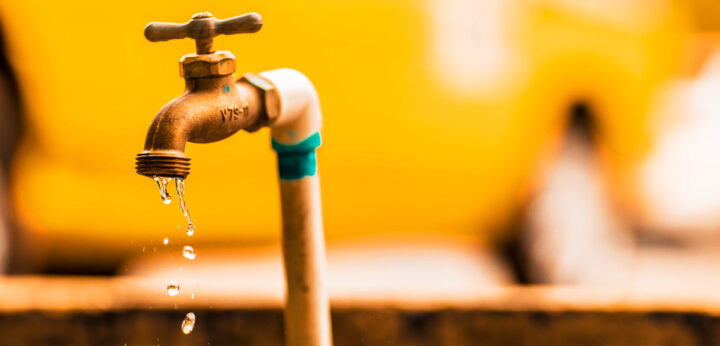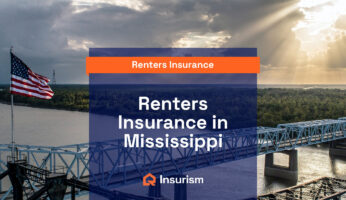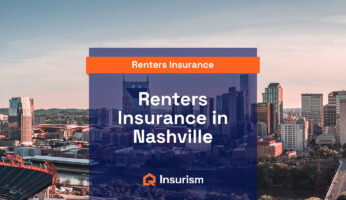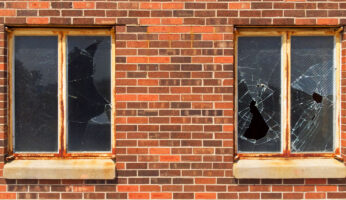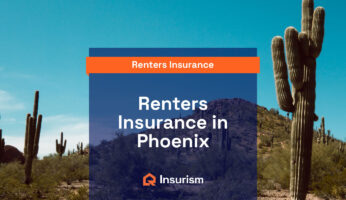Table of Contents
Is water damage covered by renters insurance?
Water damage is covered by renters insurance if the damage was caused by a covered peril (also known as a named peril). Common causes of water damage that are covered by renters insurance include:
- Washing machine leaks
- Toilet, sink, or bathtub overflow
- Air conditioning leaks
- Sprinkler system malfunctions
- Burst pipes
- Frozen water damage
If one of those issues causes water damage to your belongings, you can file a claim with your insurance company to recoup your losses.
Furthermore, if the water damage makes your unit uninhabitable, your insurance may cover temporary living costs (such as the cost of a hotel or Airbnb) while the damage is being repaired.
Does renters insurance cover water damage from washing machines?
Yes, renters insurance covers water damage from washing machines. If one of your household appliances breaks without warning, the resulting water damage will be covered.
However, if your washing machine breaks due to your own negligence (if you overload it with clothes, for instance), that might not be covered.
Does renters insurance cover water leak damage?
Yes, renters insurance usually covers damage from water leaks. Common causes of water leak damage that are covered include:
- Leaky faucets and sinks: Damage caused by drips, leaks, and water discharge from the plumbing fixtures around your house is usually covered.
- Water drip from appliances: Water damage from leaky machines (like your dishwasher or AC unit) is also covered.
- Burst pipes: Damage from burst pipes is sometimes covered. If a pipe unexpectedly bursts and the damage couldn’t realistically have been predicted, it’s covered. On the other hand, if the pipe burst because of poor building maintenance (i.e. if the issue could have been prevented), that won’t be covered.
- Frozen water: Both internal frozen water (e.g. in your pipes) and external frozen water (e.g. on your roof or around your windows) is covered by renters insurance.
- Accidental overflow: If your bathtub or sink overflows, that’s covered by renters insurance, even if the overflow was caused by human error.
- Damage caused by another covered peril: If a covered peril (like a falling object or a fire) creates a hole in your roof or in the walls, damage caused by water that leaks in through the gap will be covered.
Keep in mind that not all water leak damage is covered. Some causes that aren’t covered include:
- Poorly maintained plumbing: Pipes that burst because they’re old and worn-out are your landlord’s responsibility. You’ll have to file a claim directly with them to recoup your losses.
- Rain: Damage caused by rain buildup or breakthrough probably won’t be covered by your renters insurance. Rain damage is usually covered by storm insurance (which you have to buy separately), or by your landlord’s insurance policy if the damage can be traced back to structural deficiencies like poorly fitted windows or doors.
Does renters insurance cover sewer backup damage?
No, renters insurance doesn’t cover sewer backup damage.
Sewage incidents, like sewer and drain overflows and sump pump failures, aren’t covered by standard renters insurance policies.
In the event of a sewer backup, your landlord will likely be responsible for compensating you for the damage to your property. Make sure you report any sewage issues to your landlord as soon as they appear.
Does renters insurance cover flood damage?
No, renters insurance doesn’t cover flood damage. To get flood coverage, you usually have to buy a separate flood insurance policy.
How to know if water damage will be covered
If you’ve suffered water damage from a situation not detailed above, ask yourself the following questions to assess whether the damage will be covered:
1. When did it occur?
If water damage occurred suddenly, it’s likely covered by your renters insurance policy.
For example, if your AC unit suddenly started spewing water, that’s covered. However, if your AC unit was dripping water for weeks and you ignored it, you might not be entitled to a full insurance payout.
2. Where did it occur?
Water damage that occurs directly in your apartment is usually covered. Conversely, water damage that occurs in the following places usually isn’t:
- Neighboring units: If you suffer water damage from an incident that originated in your neighbor’s unit, reimbursing you for loss is their responsibility.
- Elsewhere in your building: Leaks, overflows, drips, and bursts in common areas are your landlord’s responsibility and aren’t covered.
- Outside: Water damage that originated outside the building (e.g., from heavy rain, flooding, broken fire hydrants, etc) often isn’t covered. Damage caused by frozen water is the main exception.
3. Why did it occur?
Water damage is covered when it was caused by a sudden and unavoidable accident. Water damage isn’t likely to be covered if it was caused by:
- Landlord neglect: If poor building maintenance leads to water damage, that’s your landlord’s fault and they’re responsible for reimbursing you.
- Flooding: Water damage caused by flooding isn’t covered by renters insurance. (Although floods are sudden, they aren’t “accidents.”) If your area is prone to hurricanes, tsunamis, or other natural disasters that can cause floods, think about purchasing a flood insurance policy through the National Flood Insurance Program (NFIP).
- Unreported issues: If an issue could have been prevented, it probably won’t be covered by your policy. Report problems right away to your landlord and keep a record of your communications so you can seek compensation if they fail to fix the issue.
Related Questions
- What is guest medical coverage in renters insurance?
- What is a sub-limit in renters insurance?
- Does renters insurance cover home-based businesses?
- Does renters insurance cover gold or silver bullion?
- What does "dependent in the care of" mean in renters insurance?
- Does State Farm renters insurance cover hotel stays?
